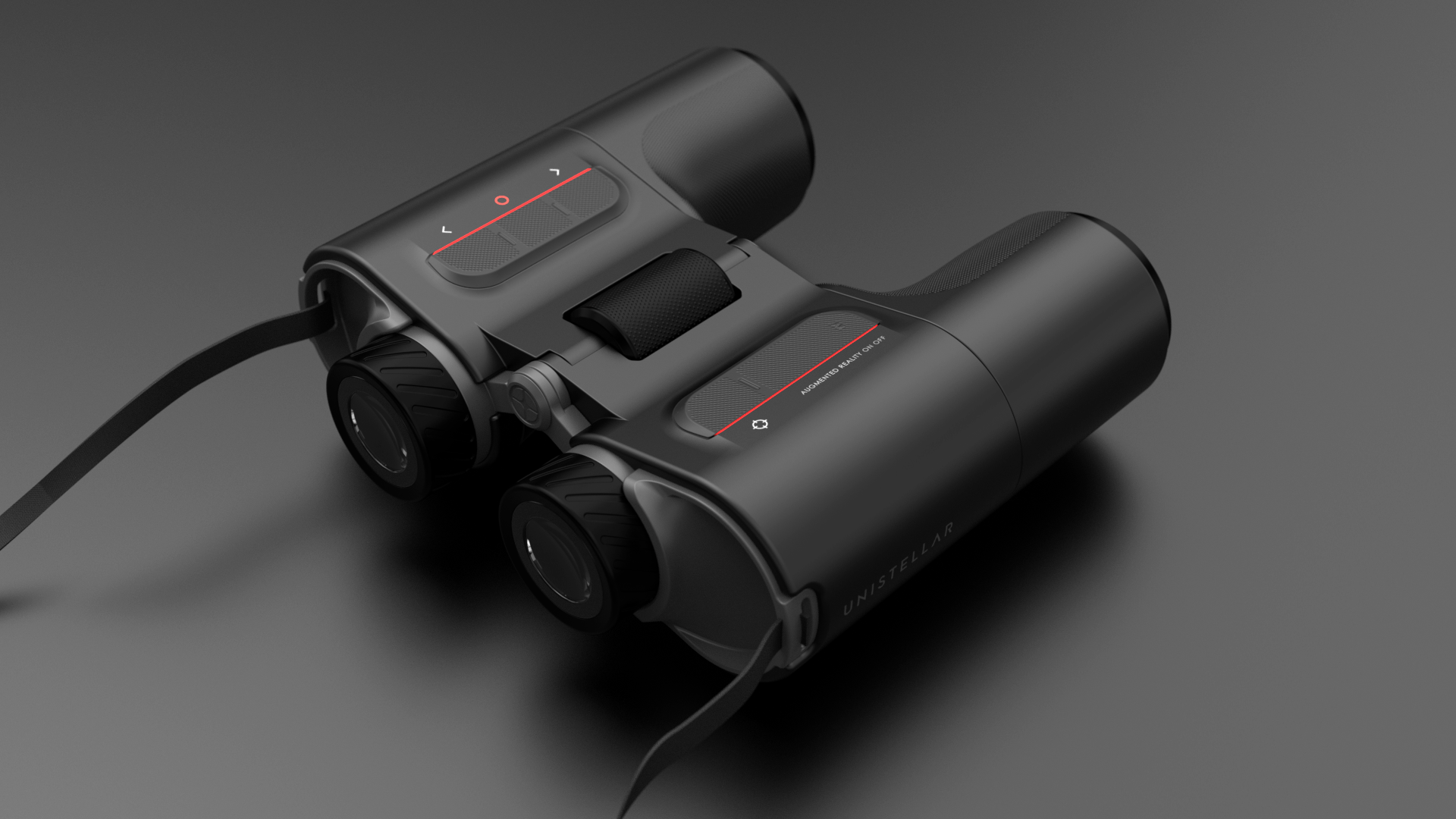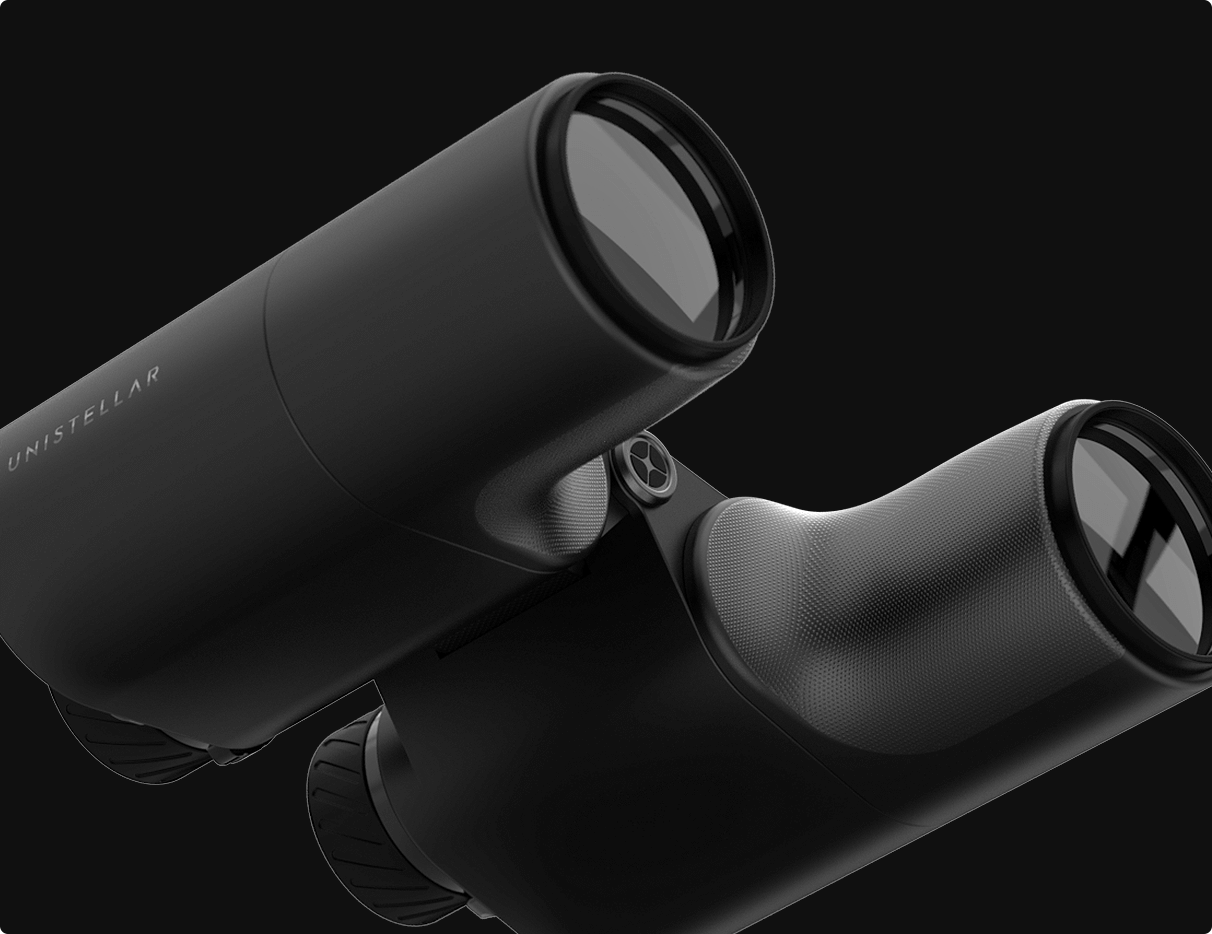The world's first smart AR binoculars just hit a major crowdfunding milestone – even though the shipping date is a distant object
Over $1 million of backing in 24 hours for Unistellar's exciting Envision

Unistellar's Envision crowdfunding campaign is officially underway and we now know plenty more about the world's first smart AR powered binoculars, which secured more than $1 million of backing on day one.
That backing has come despite the Envision's distant estimated delivery date that starts from November 2025. Unistellar must be onto something – and the Envision campaign reveals more.
Building on its smart telescope success, Unistellar has once again partnered with Nikon to support its technological innovation with cutting edge optics. Put simply, Envision wants to transform how you view the world around you.
Day or night, Envision can identify over a million landmarks and thousands of stars, with an augmented reality (AR) overlay telling you what's what.
You can activate the AR overlay to identify summits, trails, rivers, nebulae and galaxies, and then turn off the overlay to immerse yourself in the view with high quality BAC4 Fully Multicoated Nikon optics.


We now have the key binocular specs: Envision has a 10x magnification, a 50mm diameter, a six-degree field of view, a 5mm exit pupil diameter, and a Porro internal architecture. And its immersive view of what's around you can now be overlaid with useful information.
Using the AR feature, you can pinpoint a landmark and learn its name, altitude and distance, plus Envision is equipped with a compass to help you get your bearings.
Get daily insight, inspiration and deals in your inbox
Sign up for breaking news, reviews, opinion, top tech deals, and more.
In Unistellar's app, you can select a galaxy or nebulae and Envision will direct you to where it is in the night sky. Another example given by Unistellar is pointing Envision towards the moon – it can apparently indicate where Neil Armstrong and Buzz Aldrin landed the Apollo lunar module Eagle on July 20, 1969.
The Envision sounds relatively weighty at 2.65 lbs / 1.2kg, and has just a five-hour battery life per charge (or 1,000 AR engagements). However, you only need the battery for the AR functionality: when used as a traditional set of binoculars, the battery's charge is untouched.
Will they live up to their promise?
Envision is a different kind of innovation to the Swarovski Optik AX Visio which are AI-powered binoculars that can identify the bird you're looking at from a database of 9,000 species.
And Envision is significantly cheaper than Swarovski's offering. It will retail for $1,199 (that's about £950 / AU$1,800), while there's currently an early bird discount on the product's Kickstarter page, where backers can get the Envision for $699 (about £550 / AU$1,050). Obviously, all of the usual caveats about crowdfunded projects apply.
Yes, it's still in the crowdfunding phase and the estimated delivery that's all the way off in November 2025 cannot be guaranteed, but we have good confidence in Unistellar to deliver based on its previous record.
I was super-impressed with the Unistellar Odyssey Pro smart telescope which makes astronomy and astrophotography as simple as can be, and I expect even greater things for outdoor explorers from the Envision binoculars. Let's hope they live up to their crowdfunding billing.
You might also like
- These luxury smart binoculars from Swarovski Optik use AI to identify up to 9,000 birds and other wildlife, and I’m hooked
- These affordable 4K night vision binoculars could help you see the night in full color
- The Vaonis Hestia telescope could be the ultimate smartphone accessory for astronomy novices

Tim is the Cameras editor at TechRadar. He has enjoyed more than 15 years in the photo video industry with most of those in the world of tech journalism. During his time as Deputy Technical Editor with Amateur Photographer, as a freelancer and consequently editor at Tech Radar, Tim has developed a deeply technical knowledge and practical experience with cameras, educating others through news, reviews and features. He’s also worked in video production for Studio 44 with clients including Canon, and volunteers his spare time to consult a non-profit, diverse stories team based in Nairobi. Tim is curious, a keen creative, avid footballer and runner, and moderate flat white drinker who has lived in Kenya and believes we have much to enjoy and learn from each other.